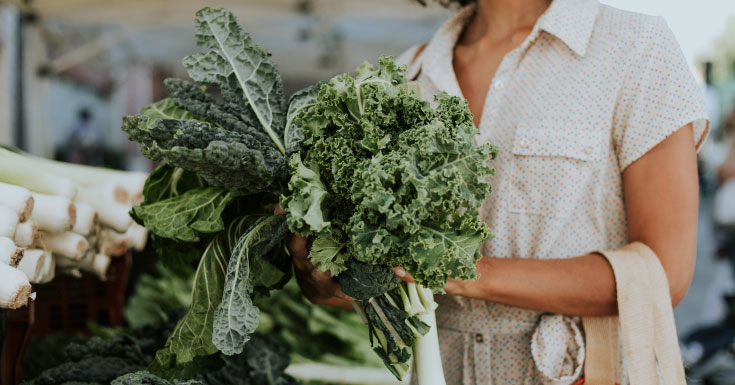Of all the super healthy greens, kale is the king. Kale or borecole (Brassica oleracea) contains a wide variety of vegetables, including broccoli, cauliflower, collard greens, and brussels sprouts. Kale is being called “the new beef”, “the queen of greens” and “a nutritional powerhouse” and for obvious reasons too.
Eating more kale can help lower cholesterol levels.
Per calorie, kale has more iron than beef, essential for formation of hemoglobin and enzymes, transporting oxygen to various parts of the body, cell growth, proper liver function and more.
One cup of kale is filled with 10% of the RDA of omega-3 fatty acids, which help, fight against arthritis, asthma and autoimmune disorders.
High in vitamin K that helps to protect against various cancers, and is necessary for normal bone health and blood clotting.
Filled with powerful antioxidants such as carotenoids and flavonoids to help protect against various cancers.
High in vitamin A, a nutrient required for sebum production to keep hair moisturised. vitamin A is also necessary for the growth of all bodily tissues, including skin and hair, and better vision.
Per calorie, kale has more calcium than milk, which aids in preventing bone loss, preventing osteoporosis and maintaining a healthy metabolism.
Filled with fibre and sulfur, both great for detoxifying your body and keeping your liver healthy.
Kale contains an antioxidant known as alpha-lipoic acid, which has been shown to lower glucose levels, increase insulin sensitivity and prevent oxidative stress-induced changes in patients with diabetes.
The fibre, potassium, vitamin C and B6 content in kale all support heart health.
High in fibre and water content, both of which help to prevent constipation and promote regularity and a healthy digestive tract.
Adequate intake of vitamin C, which kale can provide, is needed for the building and maintenance of collagen, which provides structure to skin and hair.


